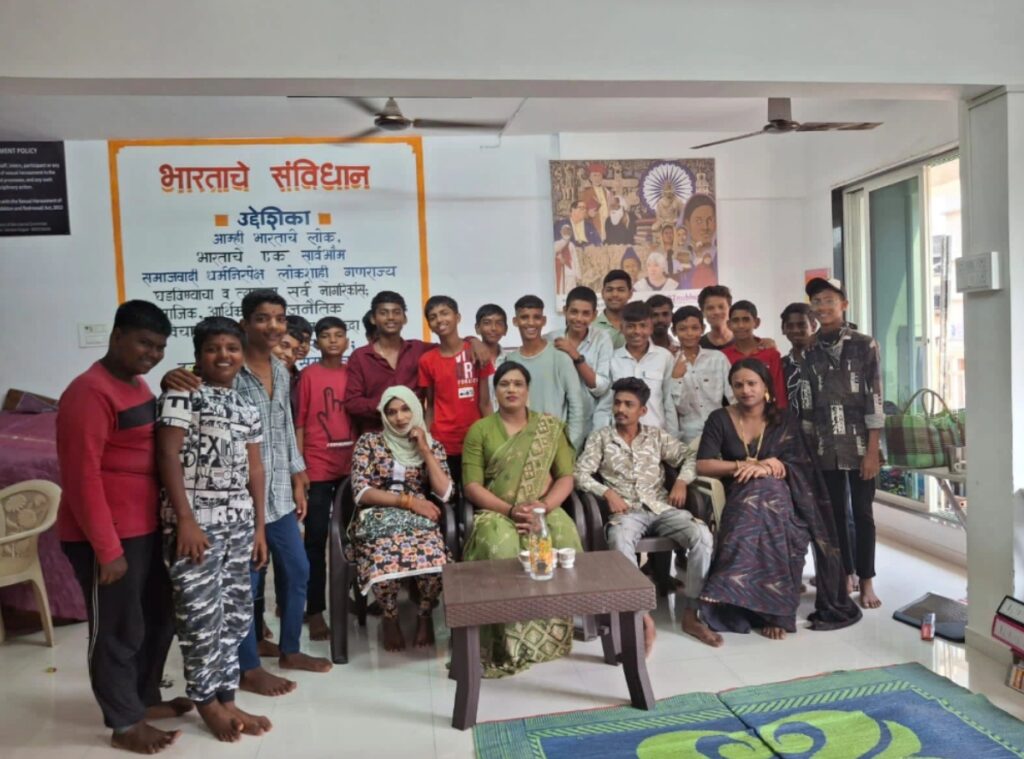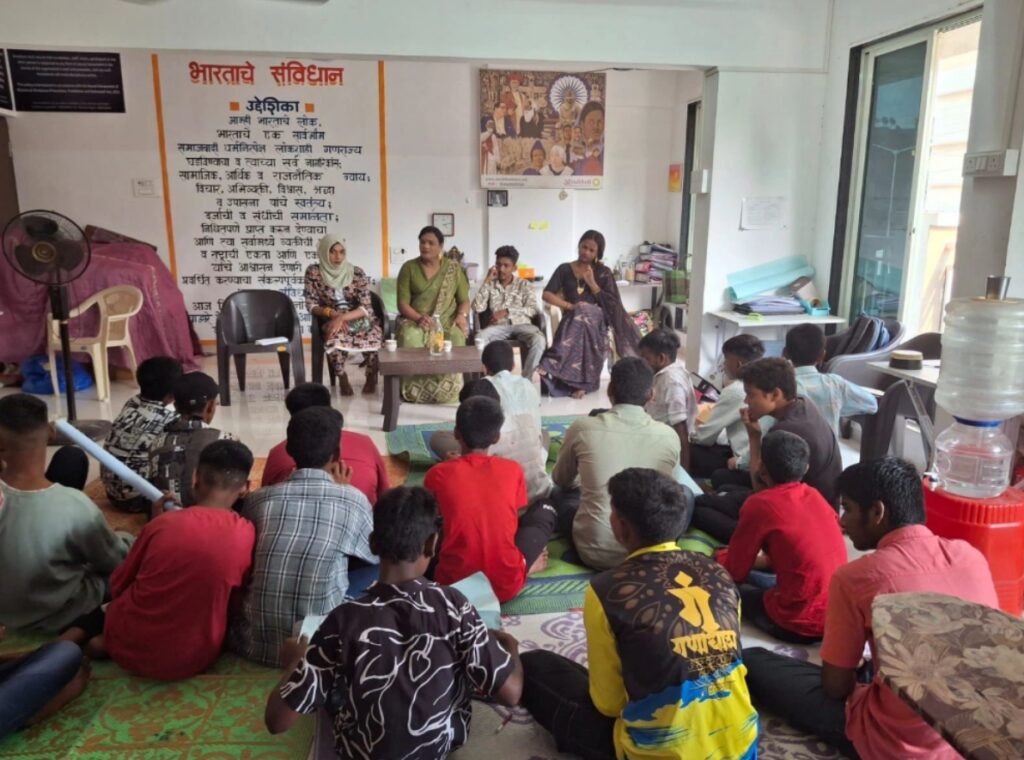Our joint workshops in-office, where youth come together from different communities for intellectual deliberations, continue. Recently, young men from NTDNT, Adivasi, Rural backgrounds had the opportunity to learn about the rights of trans persons.
We thank our friend Tamanna and her colleagues for sharing their knowledge – they are from the trans/Hijra community and run an organization for their community’s development.
Conducting the discussion in very simple language, all the participants were soon discussing easily. They explored how, as a society, we are trained to be afraid of alternate gender and sexual identities. We are told many fear perpetuating things that are false, degrading and designed to exclude and discriminate against those who have challenged the patriarchal, hetero-normative structures.
As some of the boys truthfully shared, seeing someone from the community as a resource person was novel for them. This led to a session targeted towards working on their biases. After looking at all their answers the team connected this with the rights of trans persons.
They introduced themselves and shared about their work for the community. They also shared the main pain that there are no decent employment options open for them, pushing them into unsafe and often undignified work. Workers rights, housing rights, right to mobility, right against violence, right to identity and the very real need of solidarity from others, especially men were discussed. Something as basic as taking a stand for giving room on rent to trans persons by speaking with community members for the same is also a support, as one of the team shared.
Legal aspects including the NALSA judgement 2014 were discussed. Using group discussions, experience sharing and self reflection, this was an important milestone for the male youth who have been part of a series of workshops on gender, where they are step by step working on their biases, and also reconnecting with their communities’ original feminist, matriarchal practices. These workshops are hoped to start discussions and ultimately, stand among youth and their communities to break stigma, prejudice and biases, with a commitment to break stereotypes and to create more just perspectives and open minds.
We thank friend Tamanna and her team for so generously sharing their knowledge with our youth.


